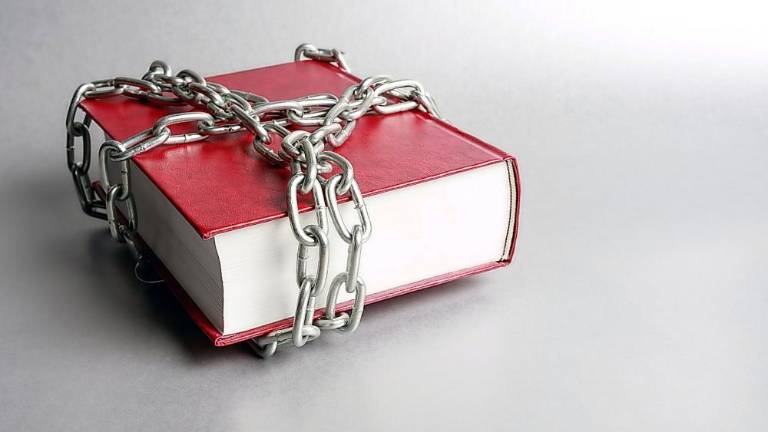Why banning books is dangerous
My View. A plea for letting children learn.

When I was a young teen— more years ago than I’d like to admit — I got in trouble for stealing books. I had just read Fahrenheit 451, Ray Bradbury’s dystopian novel and, like a knight on a crusade, I declared all books should be free. With the help of a friend, we went into a local bookstore and “lifted” a few books. Looking back, I cannot say what neurons were pulsing in my adolescent brain to allow me to think this was okay. I know I wasn’t considering the shop owner who was trying to make a living, or libraries that allow unimpeded access to books and knowledge. It was the story that Bradbury wrote, a story of a society in which books were burned to keep people from forming their own opinions — in the name of societal harmony. Books can be powerful; perhaps this is why I later became an English teacher and a writer.
It is more than alarming that school boards across the country are hearing calls to ban books from public school libraries; this is not the way to teach our children. I’m relieved that in the Delaware Valley School District, no books have been banned. Imagine a young adult struggling with gender identity or racial discrimination, and a book lets them know they are not alone. Books depicting LGBTQ characters, books about people of color, teen suicide, racism or the Holocaust are among those that well-meaning parents feel are harmful because they are sexually explicit, contain objectionable language, provoke guilt, or induce shame. They should know harm comes from not being able to discuss shameful events in the past, confront confusing topics in the present, and learn how to be a well-educated free thinking adult in the future. It is why, in many school districts, the students themselves are protesting these attempts to keep certain books out of their hands.
Calls to ban books have come from both sides of the political aisle. Six Dr. Seuss books are no longer being published because of racist and insensitive imagery. Some argue that “To Kill a Mockingbird” is objectionable for its portrayal of a “white savior.” In pointing out the importance of our First Amendment right, The American Library Association’s website quotes the words of linguist and historian, Noam Chomsky: “If we don’t believe in freedom of expression for people we despise, we don’t believe in it at all.” Another prominent historian, Dr. Henry Louis Gates Jr., in a speech to PEN America, warned against cancel culture, “Whenever we treat an identity as something to be fenced off from those of another identity, we sell short the human imagination.”
Let’s not sell our children short; let them learn about history, good or bad, shameful or honorable, and let them confront controversial topics and ask questions. A book can not only educate, but it can save a life.
Editor’s note: Linda Perlman Fields is a Peabody-winning journalist who has contributed to articles for area periodicals, including the Pike County Courier, Pike County Dispatch, and New York Magazine among others. She taught English in the New York City and East Stroudsburg Area School districts.
“Imagine a young adult struggling with gender identity or racial discrimination, and a book lets them know they are not alone.”